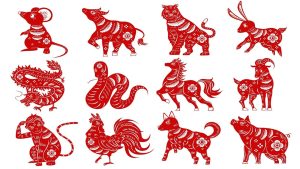
The Spring Festival in China
The Spring Festival(春节) is the most distinctive Chinese traditional festival. It has a history of over 4000 years. It is generally the first day of the first lunar month of the year. Traditionally, celebrations last for fifteen days, ending on the date of the full moon, when it is at its brightest. Chinese New Year 2022 falls on Tuesday, February 1st, 2022.
The Chinese calendar is made up of a cycle of twelve years, each of them being named after an animal. This is very like the signs of the zodiac or star signs. Some people believe that people born in a particular year, such as the Year of the Tiger as on 2022, will have some of the characteristics of that animal.
During the Spring Festival, Chinese people will hold various activities to celebrate.
- Watching New Year’s Gala
The CCTV New Year’s Gala is enjoyed at get-togethers on the eve of the Chinese lunar New Year throughout the country. It has been the country’s most-watched variety show since its first launch in 1983. Today, watching the show has become a traditional activity for many Chinese families. The gala gathers the top performers in the country and features music, dance, comedy, and drama performances.
- Sticking Chun Lian (or Spring Festival couplets)
Chun Lian is a special type of couplet used only during the Chinese New Year as part of its celebration. It comprises a couplet written on vertical strips of red paper in the best calligraphic style one can muster. Chinese people usually use Chun Lian to express their good wishes. During the Spring Festival, every household will choose a couplet to affix to the door of the house to add to the festival atmosphere.
- Giving New Year’s greetings
Waking up on the first day of the Chinese New Year, people dress up. Then, the first thing they do is to extend greetings to their parents, grandparents, and other relatives, neighbors, and friends. The two most common greetings during the Chinese New Year are: Gong Xi Fa Cai (Congratulations and be prosperous恭喜发财) and Xin Nian Kuai Le (Happy New Year新年快乐).
- Giving Lucky Money
Lucky Money is prepared for younger generations by elder generations. Usually, the money is tucked into a red envelope. During the New Year, red envelopes are typically given to the children and unmarried youths.

In addition, Chinese people will also eat some special food to celebrate the Spring Festival.
- Dumplings
In China, there is one saying goes: No dumplings, no Spring Festival. During the first day of the New Year, Chinese people, especially in Northern China, usually eat Jiao Zi (or dumplings). The shape of the dumpling resembles a gold ingot from ancient China. So people eat them and wish for money and treasures.

- Tangyuan
Tangyuan could be filled with sesame, bean paste, walnut kernel, nut, jujube paste, and so on. It is wrapped in glutinous rice flour to form a round shape, so it is a symbol of reunion, harmonious, and beauty. It is usually eaten on the Lunar New Year’s Eve or the 15th day of Chinese New Year. Eating Tangyuan has a long history in China which has become a very common food in Ming Dynasty.

- Niangao (Chinese New Year Cake)
Niangao is made of sticky glutinous rice flour. Generally, it has red, yellow or white colors, symbolizing gold and silver. There are many ways of making Niangao, and different places have their own unique methods. In northern China, there are steamed and fried Niangao, both of them are a sweet taste. In southern China, in addition to steaming and frying, it can be used for soups and stir-fries.
- Fish
In Chinese, fish sounds like ‘surplus’, which has a good meaning. Chinese people always like to have a surplus at the end of the year, because they think if they have managed to save something at the end of the year, then they can make more in the next year. Steamed fish is one of the most famous Chinese New Year recipes. What fish should be chosen for the New Year dinner is based on it being auspicious homophone.
At the end, TBC wish you a happy Spring Festival!
By Suemmer Luo, TBC Intern





